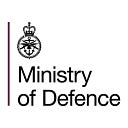The Reserve Forces: on call to protect the UK
As part of the new COVID Support Force, Reservists have been mobilised to support public services
Reservists give up their spare time to serve in the Reserve Forces, balancing their civilian life with a military career to ensure that should their country require them, they would be ready to serve as part of the military, such as in the current Coronavirus outbreak.
The Reserve Forces make up approximately one sixth of our Armed Forces personnel and are integral to protecting the nation’s security at home and overseas, particularly providing capability in specialist areas such as medical and cyber. They work alongside their regular counterparts to deliver the military capability the nation needs in an integrated fashion, and support operations worldwide.
One recent example was Operation TOSCA, the codename given to the British contribution to the United Nations Peacekeeping Force in Cyprus (UNFICYP). Approximately 240 reservists from 7 RIFLES and Royal Regiment of Fusiliers were mobilised as a battlegroup on one of the longest-running UK operational tours.
Royal Naval Reserve
The Royal Naval Reserve’s involvement in protecting the UK’s interests ranges from conflict operations, to counter-terrorism and anti-piracy work. Reservists also have a role to play in providing security at sea and humanitarian assistance across the globe.
Made up of around 3000 men and women from all backgrounds and walks of life, the RNR form part of the Royal Navy’s ‘total strength’. Around 25% of them have previously served with the Royal Navy, but most have no previous military experience.
Army Reserve
The Army Reserve provides support to the Regular Army at home and overseas. Throughout its history almost every major operation has seen reservists operate alongside their Regular counterparts.
There are two types of Army Reservists who both play key roles in the Army’s work.
· Army Reserve Soldiers come from all walks of life and work part-time as soldiers for the British Army alongside full-time Regular soldiers
· Regular Reservists are soldiers who have left the Regular army but are recalled in times of need to come back and join operations alongside Regular soldiers
The Army Reserve has two clearly defined roles. Firstly, it provides highly trained soldiers who can work alongside the Regulars on missions in the UK and overseas. Secondly, it gives people who have specialist skills, like medics and engineers, a range of opportunities to use them in new ways.
RAF Reserve
The RAF Reserve provide the RAF with the additional trained personnel it needs at times of tension, humanitarian crisis, or conflict. Reserves in the RAF do over 40 different roles including logistics, flight operations, medical and intelligence.
They are deployed in the same places and situations as regular personnel, whether providing relief and aid to countries that need it most or thwarting terrorist actions.
Reserves play a key role in the RAF’s work defending UK airspace through reconnaissance, intelligence gathering, surveillance and technology. They could be deployed in disaster zones to deliver urgent humanitarian aid, or support peace keeping and reconstruction initiatives.
